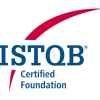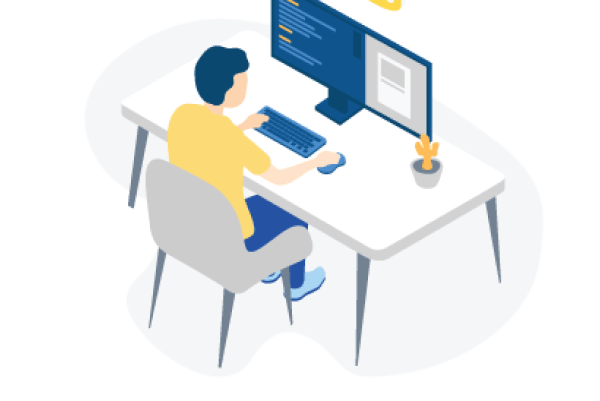Fundamentals course
Building Strong Foundations: Mastering Software Testing Fundamentals
ISTQB Foundation level lessons included!

PRE-ORDER
GET 70% OFF-
50+ Lessons
-
ISTQB theory
-
Lifetime access
-
50+ Practical Quizzes
-
Access on Mobile/TV
-
8 Hours Video Material
Last Update, January 5th, 2025
This course is your ultimate guide to understanding the principles, techniques, and practices of software testing.
What you'll learn
Fundamental principles, concepts, and approaches that guide the practice of software testing. These foundations are essential for ensuring that software meets its requirements and functions as intended.
How this framework ensures that the software meets quality standards and fulfills customer requirements.
The Test Process is a structured approach to software testing that ensures consistency, quality, and efficiency throughout the testing lifecycle.
Testing is a collaborative effort requiring a blend of technical skills, effective practices, and seamless teamwork. Each aspect contributes to achieving high-quality software while meeting timelines and maintaining efficiency.
Static and dynamic testing are two primary methods used in software testing. They serve different purposes and are conducted at various stages of the software development lifecycle to identify defects and ensure software quality.
Testing levels and types are integral to the software development lifecycle, ensuring that the software meets quality standards at different stages and in various dimensions.
Test design techniques are systematic approaches used to create test cases that ensure comprehensive coverage of the software under test. These techniques help identify potential defects efficiently while optimizing testing efforts.
Effective testing involves careful planning, efficient management, and continuous monitoring. These activities ensure that testing aligns with project goals, is executed smoothly, and delivers quality outcomes.
The process of identifying, analyzing, prioritizing, and mitigating risks that could impact the quality, timeline, or success of the testing process or the final software product.
Test automation aims to increase efficiency, reduce human error, and improve the repeatability of testing processes, especially for repetitive and regression tests.
The first 100 subscribers get 70% OFF

8+ hours of video lessons
The course includes over hours and hours of 1080P (HD) video tutorials with high-quality sound. All the videos are hand-edited and unnecessary parts are removed. You will only learn "what you need to learn" to become successful!

This course is your ultimate guide to understanding the principles, techniques, and practices of software testing. Whether you are a beginner looking to step into the world of quality assurance or an experienced professional aiming to refine your skills, our content is designed to equip you with the knowledge and tools to excel.
ISTQB Foundation Level Insights.
We’ll also delve into the ISTQB Foundation Level syllabus, providing a detailed discussion on its documentation and theoretical aspects. Gain a deeper understanding of industry-standard testing practices, terminologies, and frameworks as defined by the ISTQB, setting you on a path toward certification and excellence in your QA career.

This course is perfect for beginners with no previous testing experience.
Training for the Certified Tester Foundation Level ISTQB.
Anyone who wants or needs a basic understanding of software testing.
Developers who want to understand software testing.
........
Syllabus
Chapter 1
1.1 What is Testing?
1.2 Objectives of Testing
1.3 Differences Between Testing and Debugging
1.4 Testing Principles
1.5 Contributions of Testing to Success
1.6 Testing’s Role in Quality Assurance (QA)
1.7 Errors, Defects, Failures, and Root Causes
Chapter 2
2.1 Testing Across Different SDLC Phases
2.2 How SDLC Stages Impact Testing
2.3 Testing as a Development Driver
2.4 DevOps and Testing Integration
2.5 Shift-Left Strategies
2.6 Retrospectives for Process Improvement
Chapter 3
3.1 Core Test Activities and Tasks
3.2 Test Process in Context
3.3 Understanding Testware
3.4 Traceability Between Test Basis and Testware
3.5 Roles and Responsibilities in Testing
Chapter 4
4.1 Essential Skills for Testers
4.2 Embracing the Whole-Team Approach
4.3 Importance of Testing Independence
4.4 Collaborative User Story Writing
4.5 Setting and Using Acceptance Criteria
4.6 Introduction to Acceptance Test-Driven Development (ATDD)
Chapter 5
5.1 Basics of Static Testing
5.2 Work Products for Static Testing
5.3 Value and Benefits of Static Testing
5.4 Comparing Static and Dynamic Testing
5.5 Benefits of Early Stakeholder Feedback
Chapter 6
6.1 Overview of Test Levels
6.2 Exploring Test Types
6.3 Confirmation Testing vs. Regression Testing
6.4 Maintenance Testing
6.5 Test Pyramid and Testing Quadrants
Chapter 7
7.1 Black-Box Techniques
7.2 White-Box Techniques
7.3 Experience-Based Techniques
Chapter 8
8.1 Test Planning: Purpose and Content
8.2 Entry and Exit Criteria
8.3 Estimation Techniques
8.4 Prioritizing Test Cases
8.5 Metrics for Monitoring Testing
8.6 Test Reports: Purpose and Audience
8.7 Communicating Testing Progress
8.8 Configuration Management Essentials
Chapter 9
9.1 Understanding Risk and Its Attributes
9.2 Product Risk Analysis
9.3 Strategies for Managing and Controlling Product Risks
Chapter 10
10.1 Introduction to Test Automation
10.2 Benefits and Challenges of Automation
10.3 Tool Support for Testing
10.4 Best Practices for Implementing Test Automation
The first 100 subscribers get 70% OFF
Your instructor

Software Test Coordinator with over 10 years of experience specializing in ensuring quality and reliability across diverse software platforms. Adept at coordinating test strategies, managing teams, and streamlining QA processes to meet project goals efficiently. Passionate about leveraging expertise in automation and manual testing to deliver robust software solutions. Known for strong problem-solving skills and a commitment to continuous improvement in software development practices.
Release Date of the Fundamentals Course
FAQs
This course offers comprehensive, up-to-date knowledge in software testing, equipping you with the skills and tools needed to excel in the industry. Whether you're starting a career in QA or looking to advance your existing skills.
No prior experience is required. This course is designed for beginners as well as professionals looking to enhance their testing skills.
The is no certification at the moment on mytestplan. You will have enough knowledge to take the official verified ISTQB foundation level exam after this course (visit ISTQB site's for exam enrollment).
We offer support through email. Our instructors and community members are here to help you succeed.
The release date is set on first of February 2025. After this date you will have lifetime access.
We offer a flexible refund and cancellation policy:
If you decide the course isn’t right for you, you can request a full refund within 7 of enrollment (if the course completion is less than 50%)
We accept a variety of payment methods to make enrollment convenient for you, including:
Credit and Debit Cards (Visa, Mastercard, American Express, etc.)
Online Payment Platforms (PayPal, Stripe, etc.)
This course is independently developed and is not affiliated with, endorsed by, or in partnership with the International Software Testing Qualifications Board (ISTQB). All trademarks, service marks, and logos related to ISTQB are the property of their respective owners.
We aim to provide high-quality training that aligns with industry standards, including ISTQB concepts and principles, to help learners succeed in software testing certification exams and their careers.
The first 100 subscribers get 70% OFF
Checkout
| Product | Subtotal |
|---|---|
| Fundamentals × 1 | $ 59,00 |
| Subtotal | $ 59,00 |
| Total | $ 59,00 |
